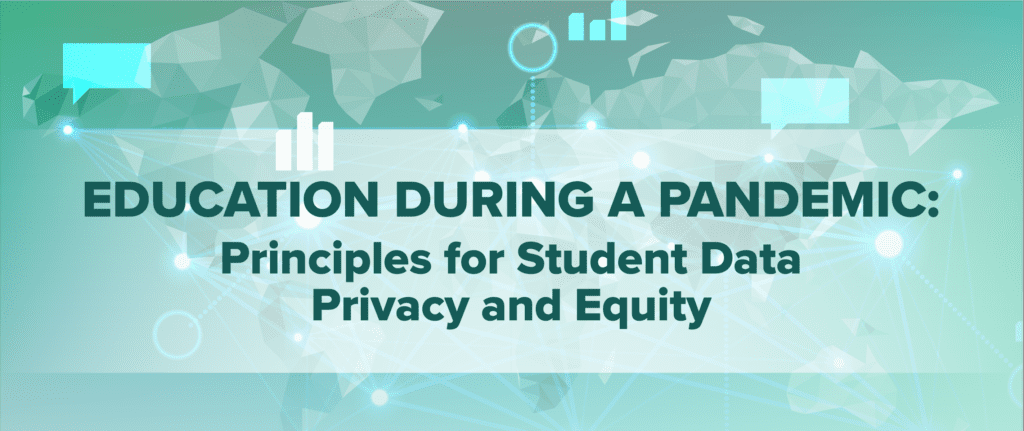Today, twenty-five education, healthcare, disability rights, civil liberties, and data protection organizations released ten principles for student privacy and equity to help guide schools and districts as they provide for students during the COVID-19 pandemic. Rather than serve as a replacement for in-depth policies, these principles are intended to help all education stakeholders navigate the new normal by raising key privacy and equity considerations.
The COVID-19 global health crisis introduced several concerns for students, their families or caregivers, and school staff during the Spring 2020 school semester. As schools continue to start school virtually and develop virtual contingency plans, many are adopting new or relying on existing technology platforms to deliver educational services. When developing plans for safely returning to school in-person and attempting to meet local, state, and federal mandates, schools are making broad requests for sensitive information from students and staff. Additionally, many schools are incorporating technology programs that collect sensitive information to prevent the spread of COVID-19. For example, some schools have adopted technology that tracks student location for adherence to social distancing policies or require students and staff to enter their health information into an app every day. Schools must consider the potential benefits of such programs as well as the associated equity and privacy risks they pose to students, and the heightened risks posed to marginalized students. However, the burden of safely reopening schools in-person should not fall solely on school administrators and local leadership. State and federal policymakers must provide schools with the resources and guidance they desperately need so that schools can reopen—physically and virtually—in a safe, equitable, and privacy-protective manner.

Data and technology-driven efforts to educate students during the pandemic and combat COVID-19 will only succeed if students and families trust that schools have adequate privacy and equity safeguards in place. Without trust, students and families will not feel comfortable disclosing sensitive data or engaging in an online classroom. Experts in education, healthcare, disability rights, civil liberties, and data protection agree that schools should be guided by principles that center student equity and privacy when schools collect data or adopt technology to mitigate student and staff risk of contracting COVID-19. Specifically, we recommend that schools:
Signatories:
- Autism Society of America
- Autistic Self Advocacy Network
- The Bazelon Center for Mental Health Law
- Center for Public Representation
- CoSN – the Consortium for School Networking
- Council of Parent Attorneys and Advocates
- Digital Promise
- Disability Rights Education & Defense Fund
- Family Online Safety Institute
- Future of Privacy Forum
- InnovateEdu
- Mental Health America
- National Association of Councils on Developmental Disabilities
- National Association of School Psychologists
- National Center for Learning Disabilities
- National Disability Rights Network
- National Education Association
- National PTA
- New America’s Open Technology Institute
- Public Advocacy for Kids
- School-Based Health Alliance
- Southern Poverty Law Center
- The Advocacy Institute
- The Arc of the United States
- The National Council on Independent Living


